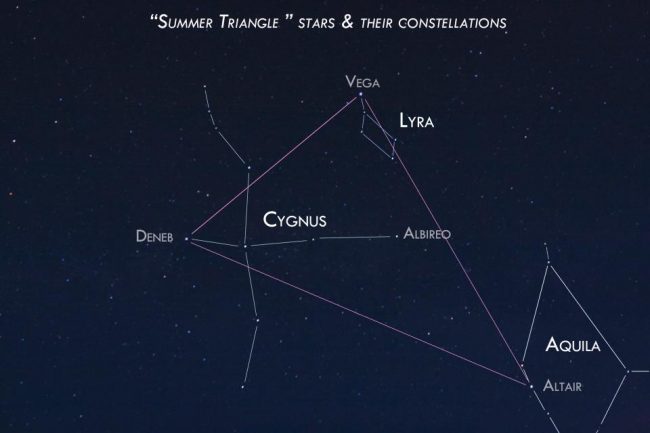Rare Chi Cygnids {meteors} are active! Maybe. Observing info here (earthsky.org)
Posted by Eddie Irizarry
September 4, 2025
Like most meteor showers, the Chi Cygnids increase and decrease in activity in both a predictable and unpredictable way. After all, we’re talking about encountering particles of cometary debris in space here! This September shower becomes more active every 5 years, and 2025 appears to be one of those years. Astronomers P. Jenniskens, M. Breukers and C. Johannink – using the Cameras for Allsky Meteor Surveillance (CAMS) – report that the Chi Cygnids meteor shower was detected for dates around August 20-31, 2025. Based on past returns, the shower is expected to increase in activity gradually up to a peak around September 14, followed by a rapid decline.
***
The return of the Chi Cygnids every five years suggests it might be from particles left by an unknown Jupiter-family comet. And the location of the related debris in our solar system might slightly change or move thanks to the gravitational influence of Jupiter.
Many of the best known or famous meteor showers require that you observe late in the night. But the Chi Cygnids’ radiant is high in the sky – close to the zenith – as soon as it gets dark. So it’s an early evening meteor shower! Get out there as soon as it gets dark.
The Chi Cygnid aren’t known as the brightest meteors. But they do catch the eye because the meteors are quite slow. They have an estimated speed of just 15 km per second (33,500 mph), which is slow compared to most shower meteors. Compare them to the Perseids, which zip through the air at about 60 km per second (133,000 mph). Their slow speed makes them easier for you to spot, and enjoy. Just be sure to observe from a dark locate. Visit EarthSky’s Best Places to Stargaze here.
***
During the 2020 return of this shower, low-light cameras detected 449 meteors identified as likely shower members. This doesn’t guarantee we’ll see hundreds this year, but we can try to catch some of these episodic meteors.

***
more: https://earthsky.org/space/strange-meteor-shower-chi-cygnids-sept-2025
